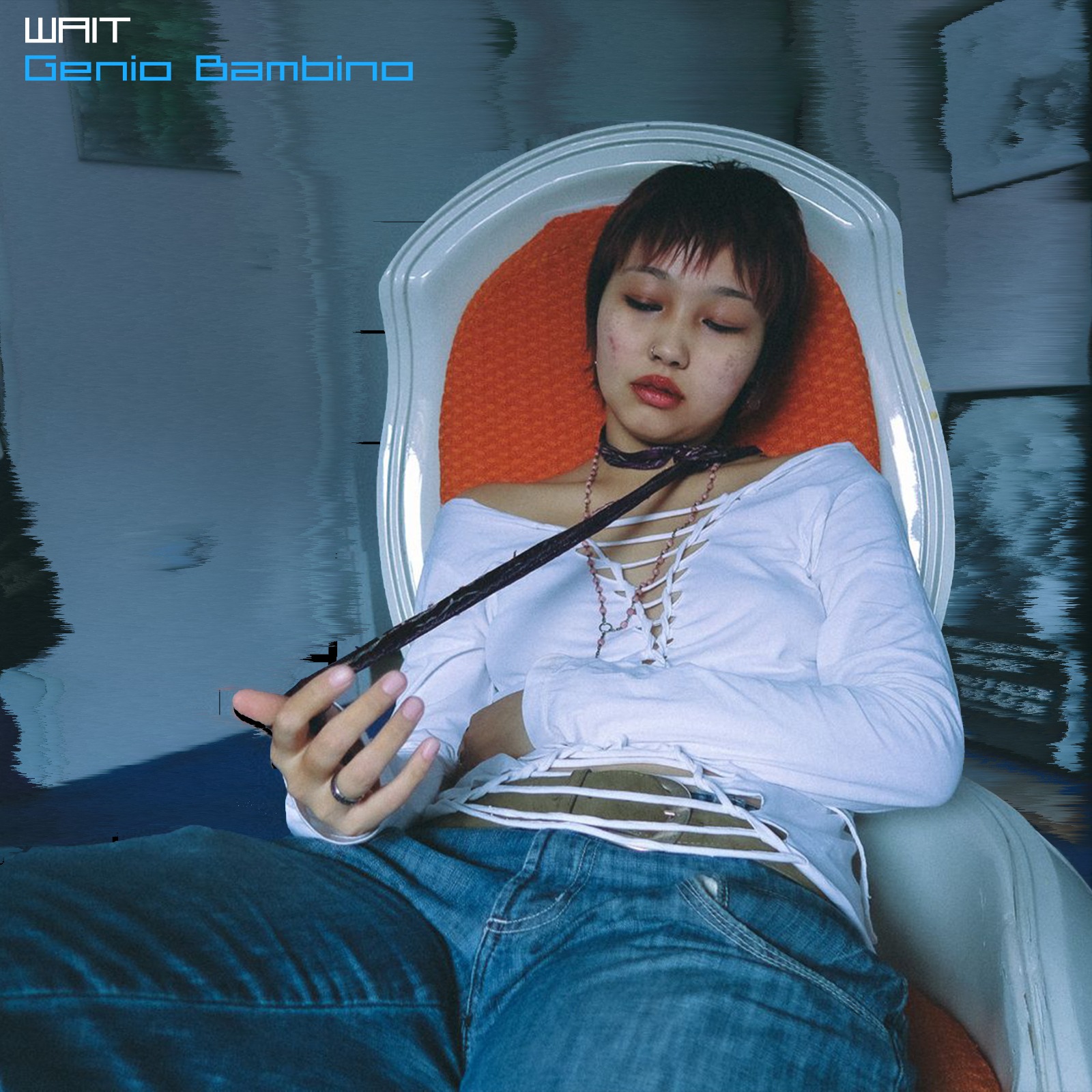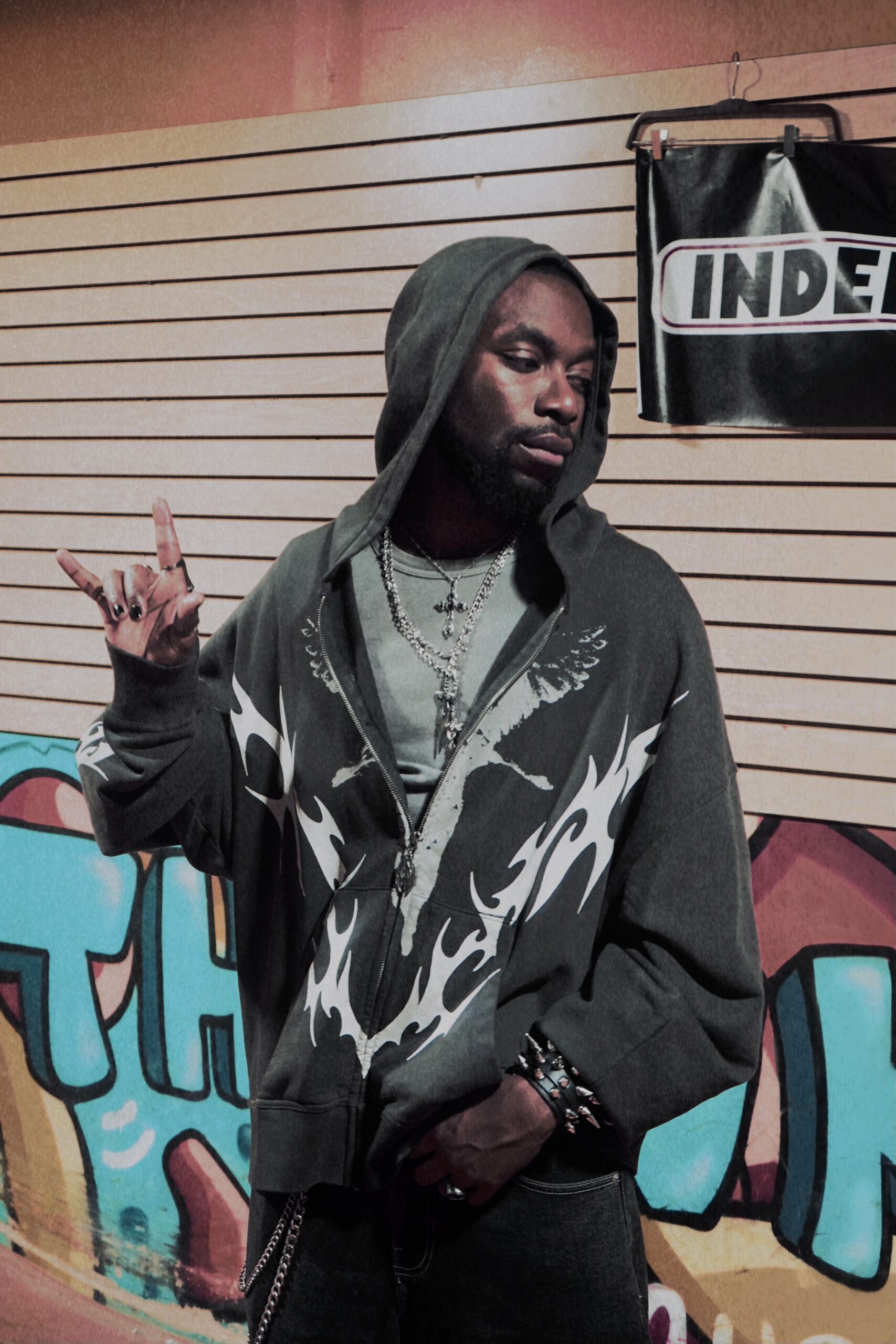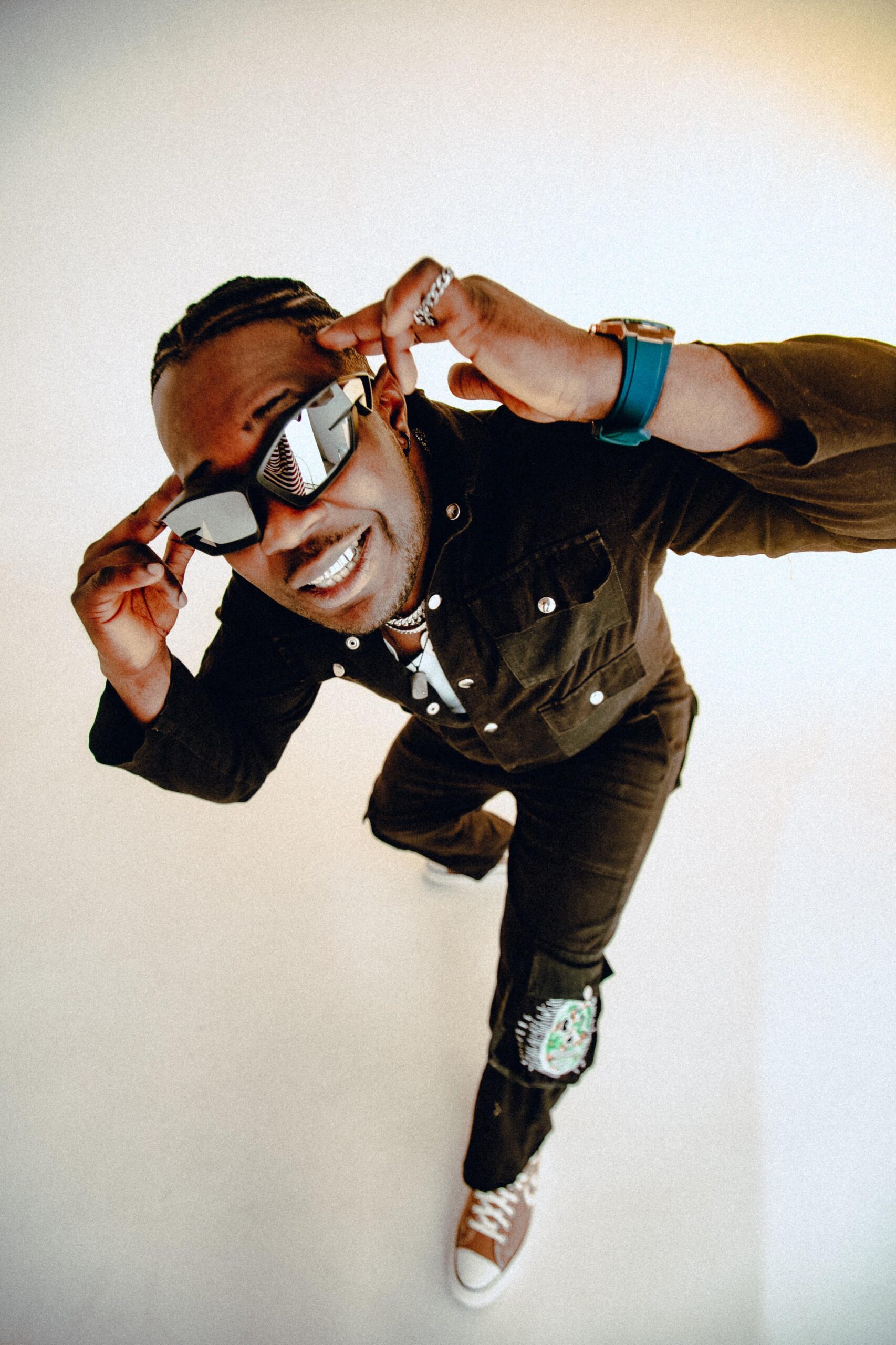Bomi Anifowose
What does it mean for a song to be the best? In a country like Nigeria, where sound is both spirit and spectacle, defining “best” is less a science and more a confession. There are no absolute rules here, only resonance. Charts may measure reach, and algorithms may reflect popularity, but the heart always knows what it heard, when it heard it, and how it felt in that moment.
This is not a ranking built solely on numbers. This is not a slave-to-virality list. This is, as far as this writer is concerned, a deeply personal and intuitive selection of Nigerian songs that moved the culture forward in 2025.
Here, best means something more fluid—songs that tugged at memory, that sounded like risk, that felt like the future even when rooted in local truths.
The real MVPs of the first half of 2025 are the underdogs who painted pictures with words, the newcomers who bent melodies into anthems of identity, and yes, the viral bangers that made our playlists scream and our streets sing.
This list celebrates range—lyrical depth, cultural clarity, sonic experimentation, and relevance.
If you’re looking for the same-old chart-dominators, you might be surprised. But if you’re searching for the songs that best reflect Nigeria’s musical pulse this year—from quiet brilliance to loud dominance—then welcome. Let’s dive in.
25. Amaeya – How Do You
Genre: Alternative R&B / Soul
There are love songs and then there are love letters sung, fragile, and stitched together with trembling breath. How Do You is the latter. Amaeya does not raise her voice to beg for affection; she simply asks, and in the asking, becomes a mirror for every listener who has ever stayed up too late rereading silence. A minimalist production palette—soft keys, haunting synths, and airy backing vocals—lets her questions float in the quiet where answers are too afraid to land. It is vulnerable, brave, and achingly pure, fitting snugly in the lineage of Nigeria’s growing alternative R&B scene.
24. Falz Feat Odumodublvck – Anything Goes
Genre: Rap / Hip-Hop
Two men. One Lagos. Zero chill. Anything Goes is a cinematic Lagos night compressed into two verses and a hook. Horns blare like traffic warnings, the beat stomps with the unbothered confidence of a reckless danfo driver, and Falz’s satirical pen collides with Odumodu’s bricklaying flow.
Together they document a society sprinting without brakes—corruption, chaos, coded behavior—and make it sound like an anthem. This is satire with swagger, rebellion with rhythm. The production leans on brassy hip-hop with Naija street sensibility, pulling energy straight from asphalt and backroom gist.
23. Lady Donli – Keep On Lovin Me ( Biko Biko)
Genre: Afro-Disco / Highlife Fusion
Lady Donli walks barefoot through eras. In Keep On Lovin Me (Biko Biko) she tiptoes into 1970s disco highlife, channels smoky Lagos lounges, and blends it with present-day longing. With every biko she reclaims softness not as weakness but as revolution.
The Yinka Bernie produced groove is infectious—wah-wah guitars flirt with funky basslines while her voice floats with deliberate syrupy seduction. It is a plea, a prayer, and a party rolled into one, a sonic dance between vintage tenderness and modern emotional clarity.
22. Teledalase – Abidi
Genre: Afro-Soul / Indigenous Folk
Abidi is more than a song—it is a ritual. Teledalase marries Yoruba spiritual cadence with Afro-Soul mystique to summon sounds that feel older than recorded history. There is percussion that breathes and melodies that sway like ancestral hymns. His vocals shift between chant and whisper, pulling listeners into a state of trance. The title itself, Abidi—a nod to beginnings and essence—feels prophetic. Teledalase is not just making music, he is reviving memory, opening a portal between earth and eternity.
21. Obongjayar – Life Ahead
Genre: Alternative / Afro-Electronic
No one bends genre like Obongjayar. Life Ahead is part spoken-word sermon, part tribal electronic hymn. His voice is volcanic, gravelly yet angelic, and the lyrics are raw reflections on purpose, mortality, and the ever-winding road to self. With cinematic drums and ambient synths, he constructs a spiritual corridor where Afrofuturism meets postcolonial poetry. It is music for the soul’s journey—road-weary yet hopeful, bruised yet defiant. The life ahead may be uncertain, but Obongjayar makes uncertainty sound like faith.
20. Joyce Olong – WWYD
Genre: Folk / Alternative Pop
Joyce Olong sings like someone who has tasted both war and wonder. On WWYD—short for What Would You Do—she does not preach, she poses. The song unfolds like a diary entry written during a storm, questioning love, humanity, and moral paralysis in the face of power. Her voice is delicate, like cracked glass held together by grace, and the lyrics feel handwritten, philosophical yet intimate, conversational yet confronting. With gentle guitars, a soft-spoken rhythm, and just enough reverb to mimic distance, WWYD creates a hushed intensity. This is not just music, it is a challenge disguised as a lullaby, a mirror that refuses to flatter.
19. Sound of Salem – Imole
Genre: Afro-Gospel / Indie Soul
Imole, which means light in Yoruba, feels less like a song and more like a sonic cleansing. Sound of Salem crafts a spiritual experience where soul harmonies meet percussive groove, birthing a track that sounds ancient and urgent all at once. The vocals ripple with conviction, weaving scriptural symbolism with folk-rooted vulnerability. This is not praise for performance’s sake; this is worship soaked in sincerity. Imole radiates peace and calls for introspection, like the soundtrack to a sunlit morning after a long night of doubt.
18. Run Town – Do Me
Genre: Afro-R&B / Alté Dancehall
Runtown’s Do Me is not a comeback, it is a quiet reassertion. It does not beg to be heard, but it lingers like perfume on expensive linen. The track floats in that elegant pocket between Afro-R&B and dancehall, with his voice weaving through the beat like silk threading through bass. There is no rush here, only atmosphere. Each word feels measured, each pause deliberate. He sounds like a man who has loved too much to fake it and seen too much to force it.
The production is polished and plush, built on minimalist synths, slow-burning percussions, and a bassline that rolls in like late-night thunder. It is sensual without being sleazy, emotional without being soft. Do Me is the sound of a grown man revisiting desire with both nostalgia and caution. There is no heartbreak here, only recognition of how love—when done right or wrong—always leaves fingerprints on the soul.
In a landscape obsessed with virality, Runtown chooses vibe and depth instead. Do Me is not trying to top charts. It is trying to stay in your head long after the playlist has moved on. And that is exactly what it does.
17. Tay Iwar – Bad Belle
Genre: Neo-Soul / Alté R&B
Tay Iwar has always whispered where others scream, and in Bad Belle he sharpens his voice into velvet protest. The track floats on syrupy basslines and misty chords, yet beneath the smooth delivery lies a biting message.
This is soul with teeth, a commentary on envy, betrayal, and resilience in the face of silent sabotage. His falsetto carries both pain and poise, while the production gently burns like incense in a dimly lit room. With Bad Belle, Tay remains a craftsman of introspection, teaching that even soft voices can cut deep.
16. Ayra Starr – All The Love
Genre: Afro-Pop / Contemporary R&B
Ayra Starr trades glitter for gravity in All the Love, a mid-tempo confession that finds her baring emotion with remarkable maturity. The track is lush with layered harmonies and pulsing synths, balancing vulnerability and rhythm in a way that only Ayra can. Her voice swings between pleading and praising, as if wrestling with a love that feels both divine and dangerous.
There is power in her restraint here, in her refusal to oversing or overwrite. This is not just another Afropop hit; it is a soft anthem for those learning to receive the love they once begged for.
15. Anendlessocean – JA
Genre: Gospel Soul / Afro-Fusion
ZA is not a sermon. It is a searching. With no clear translation offered by the title, Anendlessocean leaves room for mystery, and that mystery becomes the music’s most powerful tool. Anendlessocean’s voice arrives gently, almost as if he is waking from a dream, and then expands into something celestial—aching, airy, and deeply human. There is vulnerability here, but also resolve. It is the sound of someone who has been through silence and is now ready to speak to the sky, even if no one answers.
14. Mavo ft Wavestar – Escaladizzy
Genre: Afro-Fusion / Experimental Pop
There are songs you hear and then there are songs you hallucinate. Escaladizzy belongs to the latter. Mavo and wavestar makes genre feel like a sandbox, mixing Afrobeats percussion, psychedelic synths, and spoken word breakdowns into a surreal soundscape.
The title alone suggests motion and imbalance, and true to form, the beat stutters and skips like a car racing uphill with no brakes. The widely received song deserves to be on this list for its cultural reach.
13. Olamide, Young Jonn, Asake, Seyi Vibez Featuring Daecolm
Genre: Street Pop / Rap Fusion
99 is a posse cut for the books. A sprawling, star-studded celebration of power, presence, and perseverance, the track is built on a triumphant instrumental that fuses Fuji-inflected vocalizations with hip-hop grit. Olamide sets the tone with godfather gravitas, Asake rides the rhythm like a wave, Seyi Vibez delivers with prophetic street soul, Young Jonn provides the bounce, and Daecolm closes with a verse so slick it feels like silk melting into sound.
12. Lawrence Oyor – Favour
Genre: Gospel / Spiritual Chant
Lawrence Oyor does not sing songs, he births atmospheres. Favour is a declaration wrapped in trance-like melody, a looping chant that builds and builds until it fills the room with a presence you cannot name. Unlike traditional gospel structures, this track leans into repetition as revelation.
The lyrics are sparse but potent, and the instrumentation stays subdued to allow the words to linger. It feels ancient, yet necessary. With Favour, Lawrence reminds us that divine encounter is not always loud or theatrical—sometimes, it is the still voice that refuses to leave your spirit.
11. AQ Feat Blaqbonez – Who is Really Rapping
Genre: Hip-Hop / Conscious Rap
A-Q and Blaqbonez’s missile launching single comes late in the first half but has already made a bold entrance. The song is a thesis wrapped in snare drums and truth. Who Is Really Rapping finds A-Q in full veteran mode, delivering bars with surgical precision and lyrical clarity that cuts through the noise of algorithm-driven rap. Blaqbonez joins not just as a collaborator but as a co-conspirator, trading slick arrogance for sharp introspection. Together, they interrogate the Nigerian rap scene with fire and finesse, questioning authenticity, relevance, and the cost of compromise, inciting speculations of a portuding rap beef in the process.
10. Fola, Kizz Daniel – Lost
Genre: Afro-R&B / Soul Pop
When Kizz Daniel lends his voice to a track, it usually soars. But on Lost, it sinks beautifully and heartbreakingly into something deeper. Alongside rising soul singer Fola, he dives into emotional terrain where love feels like memory and melody feels like mourning. Their voices wrap around each other like smoke and candlelight, with Fola’s textured vocals providing emotional ballast while Kizz slides in with his signature melodic ease.
The beat is elegant and slow, adorned with live instrumentation and cinematic chords. There is grief here, but it is refined, honest, and human. Lost is not about despair. It is about what lingers after love has packed its bags. A masterclass in vulnerability from two artists who understand that softness is not weakness but strength wearing its Sunday best.
9. Gaise Baba feat. Lawrence Oyor – No Turning Back II
Genre: Gospel / Prophetic Afro-Fusion
Part declaration, part revival chant, No Turning Back II is not just a sequel. It is an escalation. Gaise Baba and Lawrence Oyor unite with sacred urgency, merging Afrobeats rhythm with spiritual warfare energy. It begins like a rallying cry and grows into a spiritual march, heavy with conviction but never weighed down by performance.
Gaise’s verses throb with intentionality, each word aimed like arrows at fear and doubt. Lawrence Oyor, known for his anointed chants, enters like a divine echo, turning the song into something holy yet hip. This is not gospel as genre. It is gospel as uprising. A song for believers who have survived too much to look back.
8. Shallipopi – Laho
Genre: Street Pop / Experimental Afrobeats
There is something elemental about Laho. It does not ask you to dance. It compels you. Shallipopi, never content with coloring inside the sonic lines, crafts a track that feels tribal, futuristic, and menacing all at once. The beat is chaotic and enchanting, blending distorted chants, percussive trickery, and raw vocal deliveries that feel pulled from street corners and tech labs in equal measure. Definitely one of the cultural defining bops of the year.
7. Davido Feat Omah Lay – With You
Genre: Afropop / Romantic Ballad
With You is what happens when two masters of emotional Afropop join forces and resist the urge to outshine each other. Davido and Omah Lay approach love from different directions. One bold and blazing, the other soft and smoky. But in this track, they meet at the same altar. The beat is lush and luxurious, dripping with orchestral strings and highlife guitar runs that cradle their voices like silk sheets.
Davido delivers one of his most restrained performances in years, letting the lyrics breathe and the message bloom. Omah Lay, ever the sad lover’s prophet, anchors the second half with soul-stained lines that sting more because of how quietly they are sung. With You is not just a love song. It is a declaration of emotional fluency in a genre often obsessed with grand gestures. Sometimes, intimacy whispers
6. Asake – Why Love
Genre: Fuji-Pop / Soulful Afrobeats
Why Love is not just a question. It is a wound sung in falsetto. Asake strips away the bravado that usually coats his street anthems and steps into something softer, almost philosophical. The production is lush and bittersweet, merging Fuji percussions with orchestral strings and gospel-tinged harmonies. His voice feels both near and far, layered like memory and echo.
This track shows a side of Asake we have rarely seen. He is no longer just the life of the party or the preacher from the trenches. Here, he is the poet nursing heartbreak and asking the most human question of all. Why Love earns its place at number six not because it is loud, but because it is honest. It is the sound of a man questioning joy while still dancing through the pain.
5. Seyi Vibez – Mario Kart
Genre: Street Pop / Afro-Drill
Mario Kart is the anthem of motion. Fast living, faster choices, and the ghosts you cannot leave behind. Seyi Vibez takes his streetwise pen and turns it toward a metaphor so sharp it could slice the silence. Like the game itself, the song is chaotic, colorful, and brimming with power-ups disguised as pain. He sings with urgency, not to impress but to survive. Every verse is a curve. Every beat drop is a red shell.
This is Seyi Vibez in peak form. A fusion of grit and grace, philosophy and prayer. Mario Kart deserves its top-five placement because it captures the spiritual physics of 2025 — acceleration without arrival, ambition wrapped in anxiety, and success as both blessing and burden.
4. Layefa – 6: 35
Genre: Alt-Soul / Afro-R&B
Time slows when Layefa sings. On 6:35 she gives us a timestamp not just in hours, but in emotion. The song feels like early morning — that holy hour between regret and resolve. With jazz-inspired chords, whisper-soft vocals, and a structure that unfolds like sunrise, 6:35 is a quiet masterpiece.
Her songwriting is deeply interior. She is not narrating a love story; she is dissecting it. Questioning it. Making peace with it. This is the kind of song that does not explode on charts but stays on playlists for months. Its top-four ranking is not about popularity. It is about permanence. Layefa reminds us that subtlety, when done right, hits harder than any bass drop.
3. Ayra Starr Feat Wizkid – Gimme Dat
Genre: Afropop / Afro-R&B/ Retro R&B
The second coming of this pairing felt inevitable. The result was electric. Gimme Dat is where Ayra Starr’s celestial vocals meet Wizkid’s silky restraint. It is a love song, yes, but it carries the kind of understated vibe that turns it into a mood.
The song has now amassed over 4 million views on Youtube since its release, asserting its position has one of the top bangers of the year.
2. Rema – Bout U
Bout U is Rema without the mask. Vulnerable. Vivid. Vocally unguarded. He sheds the sonic acrobatics for something raw and textured, gliding over a moody TrapSoul instrumental that feels drenched in late-night confessions. His lyrics are not declarations but admissions. Of fear. Of love. Of losing grip on both.
This is the most emotionally mature Rema has ever sounded. The melodies ache, the beat breathes like a wounded heart, and the hook sticks like a scar. It deserves its number two spot not because it is the flashiest, but because it marks growth. Bout U proves that Rema’s pen is as dangerous as his melody. He is not just shaping sound. He is shaping self-awareness in sound.
1. Kunmi – Arike
Genre: Afro-Folk / Soul
The best song of 2025 ( so far) did not come from a global superstar. It came from a voice that sounded like home. Arike is Kunmi’s quiet triumph, a song that marries Yoruba folky cadence with the delicate heartwork of modern storytelling. Sung with grace and produced with intentional simplicity, the track feels like a breeze through ancestral trees. Every word is purposeful. Every note lands gently but deeply.
There is no need for grandeur here. No need for viral choreography or a high-budget rollout. Arike soared because it felt true. It reminded us of the power of storytelling, of melody, of language and lineage. In a year full of noise, Kunmi chose clarity. And in doing so, she gave us the one song that will still feel new ten years from now.
That is why Arike is number one.




